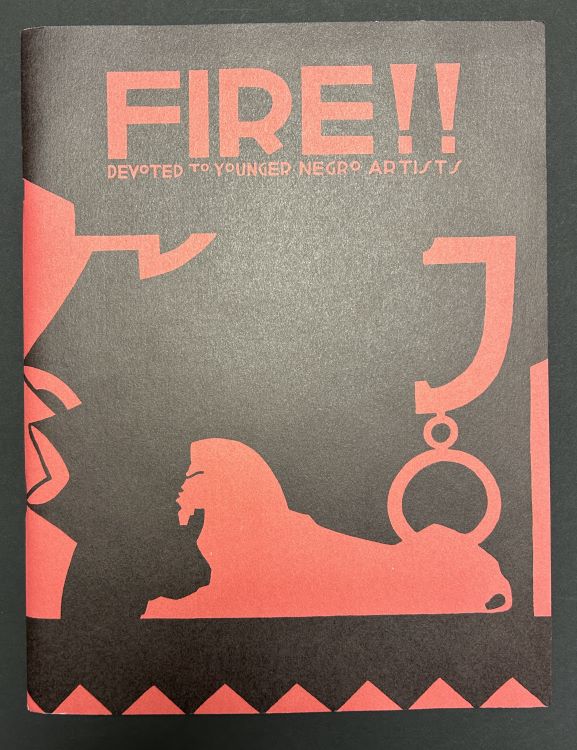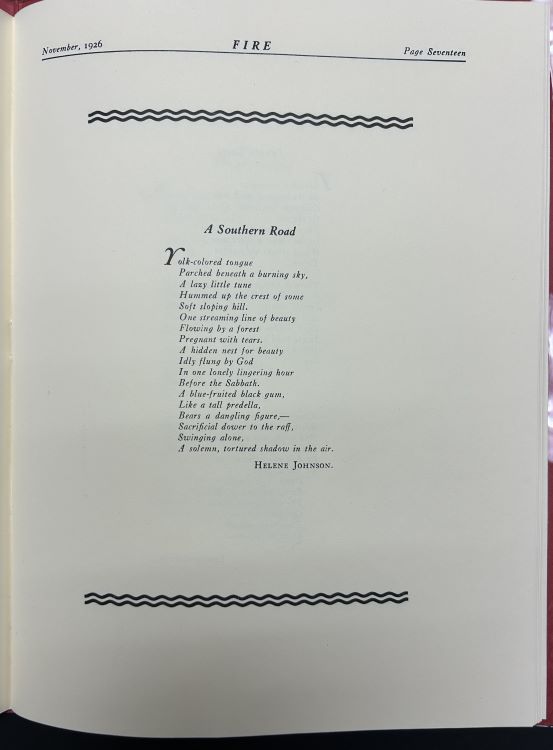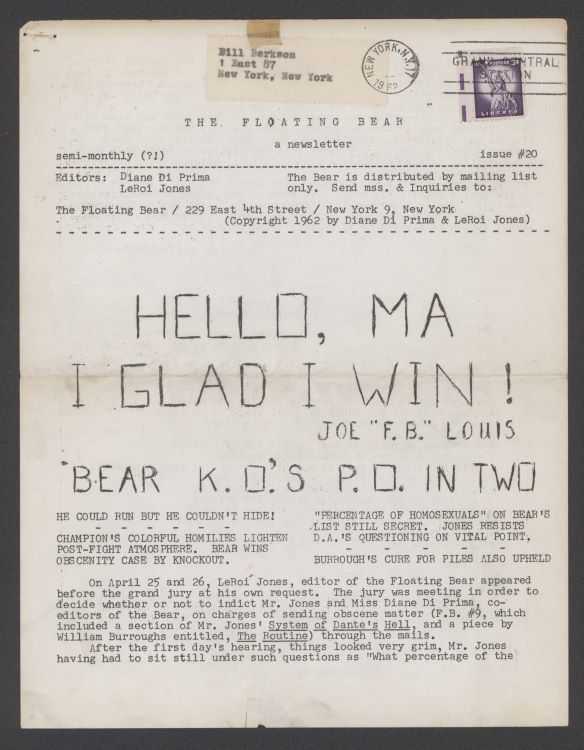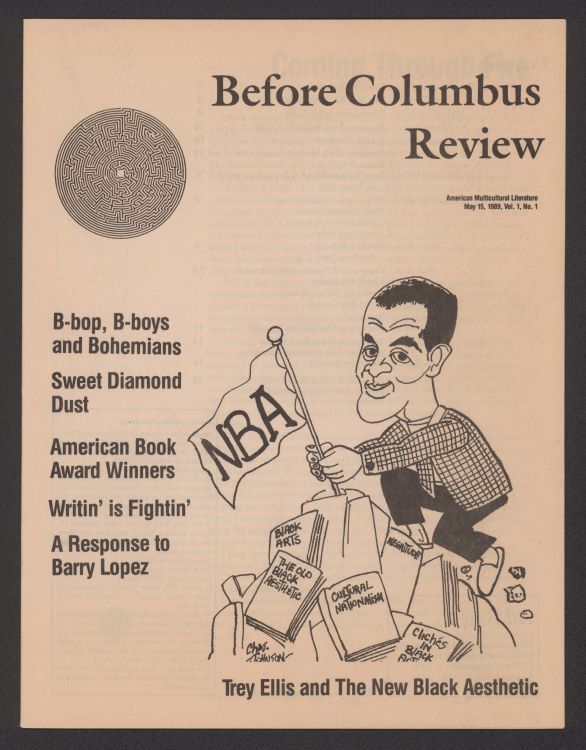Chicory is an example of community publishing as it was originally a collaboration between the editor, local poet Sam Cornish, and librarians Evelyn Levy and Thelma Bell at the Enoch Pratt Free Library in Baltimore. The phenomenon of publishing magazines and newsletters by community members for community members is not a new one, but it resonates with Soul of the Butterfly’s consideration of how a literary magazine operates as part of Black Arts activist movements.
Wallace Thurman, et al. Fire!! A Quarterly Devoted to the Younger Negro Artists. Facsimile ed., Fire!! Press, 1982.
Fire!!, a literary magazine published in 1926, exemplifies the work of community publishing and Black Arts movements. Fire!! is considered a key work of the Harlem Renaissance, as notable Black writers like Langston Hughes, Zora Neale Hurston, and Countee Cullen contributed to the debut issue.
Diane Di Prima and LeRoi Jones (Amiri Baraka), Floating Bear #20, 1962.
Artist-activists also took the means of production into their own hands and printed newsletters and magazines themselves. Such was the case with the Floating Bear newsletter (1961-1971). Published by Diane di Prima and LeRoi Jones (later known as Amiri Baraka), the Floating Bear is considered part of the “mimeograph revolution.” Issue #20 includes updates regarding di Prima and Jones’s arrest related to the newsletter’s publication of a piece by Jones that was considered obscene.
Photograph of Michael Myers working at a press, MSS 0880 Zephyrus Image Records, circa 1969-1983.
The California fine press Zephyrus Image (1969-1983) specialized in poetry and political work, including broadsides advocating for Indigenous rights at Alcatraz in 1971 and work by notable poets including Simon Ortiz.
Before Columbus Review, vol. 1, no. 1, 1989. MSS 0398 Ishmael Reed Papers.
The Before Columbus Review is the quarterly publication of the Before Columbus Foundation, which was founded in 1976. Writer and activist Ishmael Reed played a central organizing role in creating the Foundation and the associated Review. Reed has been especially critical of American literary criticism and awards, which he argues are whitewashed and not representative of “America” in all its multiethnic, multicultural complexity. The Review offered a space for creatives invested in the mission of the Foundation to discuss issues related to the state of multiethnic literature in the U.S.






